Usually we write to you from Oxford where it’s often cold and dark. Not this time: for 10 weeks this winter we are in California instead.
Late last year we applied to the startup incubator Y Combinator (YC) – and they accepted us! Since then things have moved very fast and now we are part of the YC Winter 2019 batch of startups.
YC is regarded as the world’s best startup program, producing companies such as Dropbox, Airbnb, Stripe, and Reddit.
YC is backing around 200 companies in the current batch. Our World in Data is one of only a few nonprofits they accepted, alongside Upsolve. YC focuses on early-stage for-profits, but have at times also supported non-profits, among them a number of organizations we very much admire, for example: No Lean Season, Watsi, the American Civil Liberties Union, and 80,000 hours.
Why would they support nonprofit organizations knowing they will get no financial return? They understand that nonprofits can do social good when big problems cannot be solved by a commercial business. We’re very happy to fit that profile, so we wanted to share this news and explain our plan for the coming weeks.
Why are we at Y Combinator?
Our World in Data is not a new project: for many years it was an evening and weekend project for Max, who launched the website in the summer of 2014. Since then we have expanded into a small team of researchers and web developers. Our reach and audience has grown since then: we now have around 1M visitors to the website each month, are cited in several media outlets every day, and rank in the first few Google results for many key search queries on global change.
Most of this growth happened organically. Being academics by background, we focused on getting the research right and hoped people would find it. We were happy that many people indeed found their way to our charts and research, but we haven’t focused as much as we should on building a publication that is as useful for readers as we can.
We believe that everyone – ranging from the general public to journalists, teachers or policymakers – should have a good understanding of how the world is changing. This allows us to better understand where we are today, what the key challenges are, and how we begin to work on the big problems the world now faces. This information should be free, based on the best research, understandable and easily findable. We want to reach as many people as possible, and for our readers to find exactly what they’re looking for.
So this is why we are here: We are at YC to build the best publication we possibly can. To do this we have to step outside of our traditional academic mindsets: working with some of the most ambitious startups, entrepreneurs and partners is giving us the ideas, drive, and skills to ensure we’re delivering the best work we can.
What are we doing at Y Combinator?
At YC we work closely with three partners who mentor and advise us throughout the process. We meet with them every 1-2 weeks to discuss and find answers for the problems we’re facing. We also meet with the other companies in the batch weekly, and receive talks from previous startups – Patrick Collison from Stripe, Steve Huffman from reddit, and Mathilde Collin from Front talked to us in the last three weeks.
For years we have focused on producing research, developing our database, and our visualization tool. But we have often neglected design and usability.
Some of the key things we’re working on while we’re here:
- making our content much more searchable. We have lots of content that we know is hard to navigate: when we ask what you want to find on OWID you often request research we already have on the site. You should find what you’re looking for within seconds.
- we want to improve the consistency of the design and the content layout for an easier reading experience.
- we will add country profiles: we know lots of users are looking for a digest of a particular country. We will develop country profile pages which do this.
- we have a lot of content, often in long entries. Some readers are looking for short, quick-fire digests of what’s happening in the world. We are committing to daily short updates and facts.
Another big problem we have to solve is making sure we are securely and independently financed, so that we can focus on our work rather than constantly having to worry about fundraising. We carry out our research at the University of Oxford (here) and have funding for our work there. But we publish all content and develop our data visualization engine through our new non-profit – the Global Change Data Lab. YC made it possible to get this non-profit startup off the ground by pledging a donation of $100,000. Now it is on us to find people and organizations who are willing to support us so that we can keep extending and improving our publication. If you want to support us, please get in touch!
We’re very excited to be part of YC’s community. Even more so as one of only three nonprofits. Over the next few months we will experiment with trialing new features and designs on the website. During this process we would really appreciate any feedback you have on what works and what doesn’t – click on the speech bubble in the bottom right to get in touch. With the support of YC and feedback from our users, we hope we can deliver the best resource we can.
The Our World in Data team – Esteban, Hannah, Daniel, Jaiden, Max, and Joe


